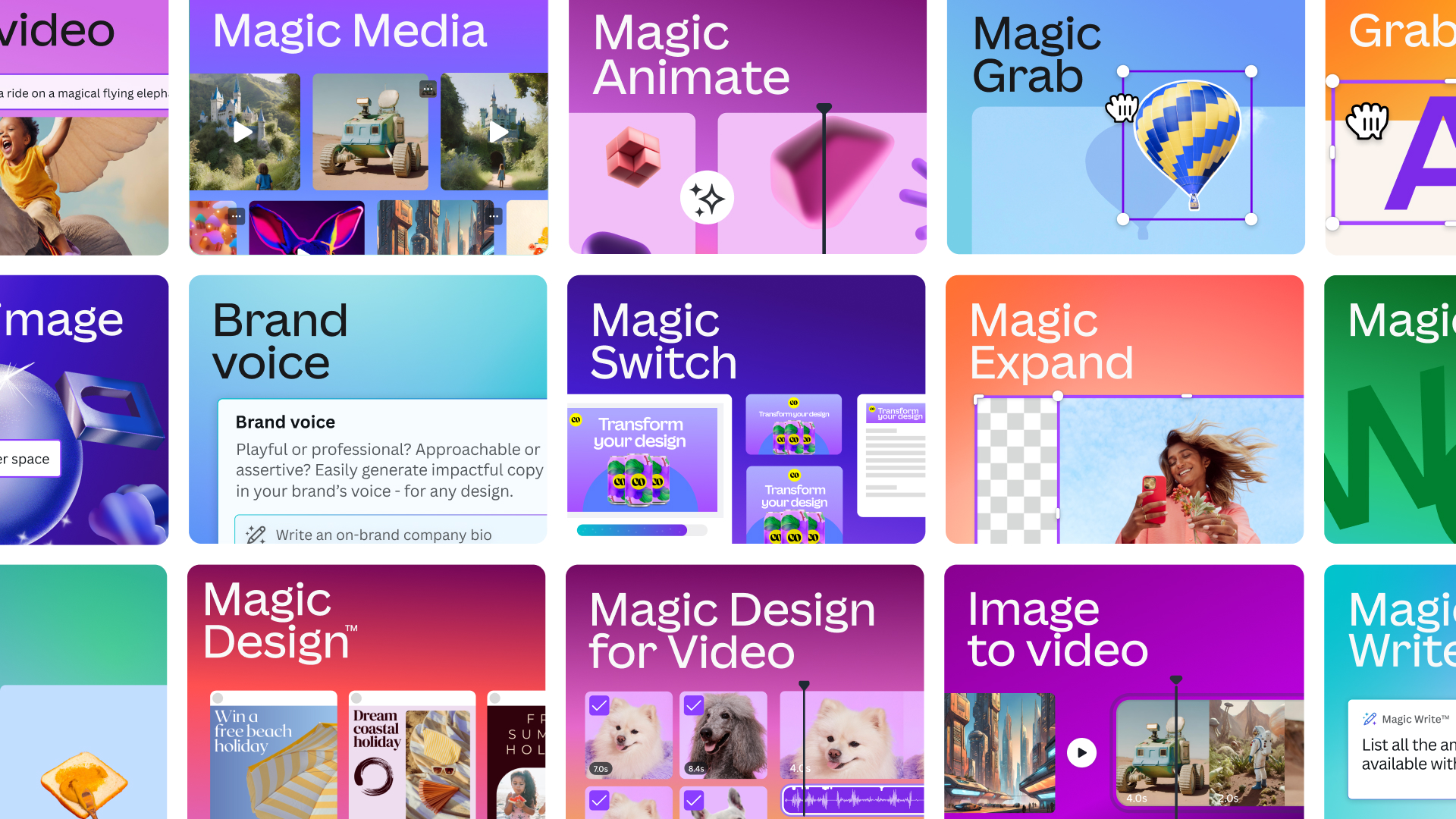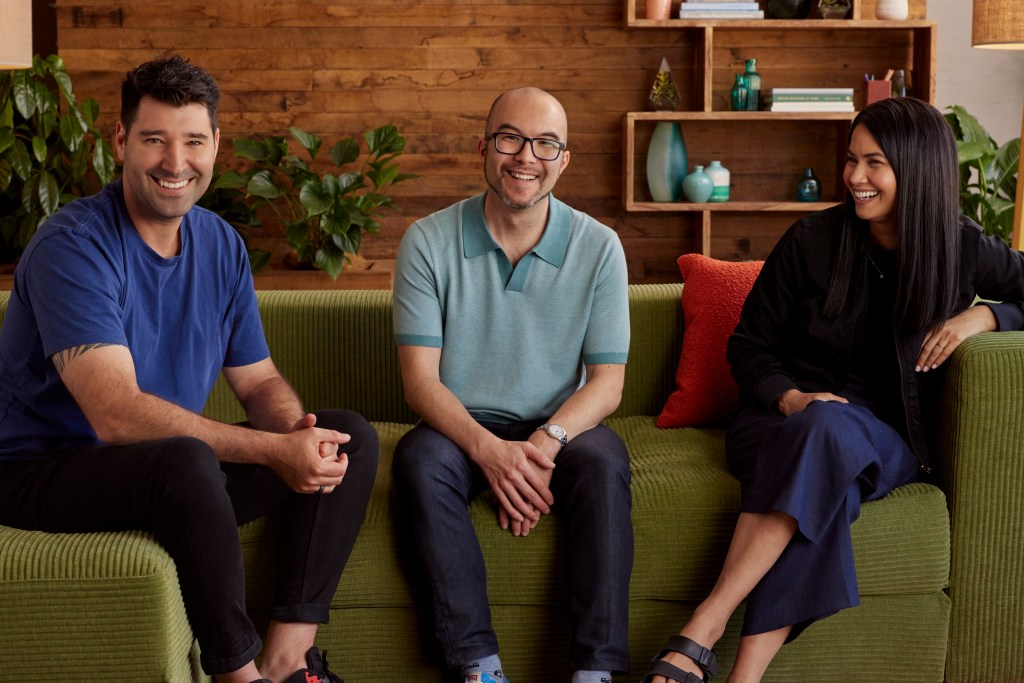Canva has crafted a wildly successful business model on the idea that graphic design should be accessible to everyone. The Australian company has raised $560 million since its founding in 2012, and is currently bringing in an annualized recurring revenue of around $1.7 billion, according to co-founder and chief product officer Cameron Adams.
Canva is in 190 countries and over 100 languages, and has signed on more than 170 million active users. But despite its rapid growth and international presence, the company has taken some hits this year. A handful of Canva’s investors — like Blackbird, T. Rowe Price and Frank Templeton — marked down the company’s valuation, which had seen a peak of $40 billion after a $200 million fundraise in 2021. Blackbird’s valuation of the company dropped to $25.6 billion and T. Rowe Price’s to around $13 billion in June.
It would be easy to think that Canva had earned those devaluations, but really, it was mainly about market sentiment. 2020 and 2021 saw a massive expansion in multiples that has since contracted, which caused investors to reevaluate. And regardless, by all standards, Canva is still a decacorn.
Adams told TechCrunch+ he’s not worried about valuation drops, anyway. “This year has been one of our best years for growth. We’ve almost doubled on most of our metrics. We’ve had 80 million more active users join since this time last year, so it’s just been up and to the right for us,” he said. “That’s what we focus on: more users, better product, revenue growth.”
Over the last 12 months, Canva has released a slew of generative AI products that Adams said gives both the company and its users a new ability to build features and design work that might not have even been considered five years ago. “For us, AI is going to bring human creativity to the next level,” Adams said, noting that AI will enable Canva to “take great visual communication to a billion people around the world.”
Many companies have jumped on the generative AI bandwagon since ChatGPT disrupted the consumer-facing space in November 2022, eliciting eye rolls and suspicion from many a journalist. But with Canva, generative AI hits different. In fact, it’s hard to imagine a better technology to boost Canva’s user growth and revenue generation. Content is the company’s bread-and-butter, the main reason why Canva has been able to scale to such impressive heights and across global boundaries. That’s because the focus has always been on offering images and templates to suit specific geographic audiences.
“One of the keys to our growth is we always thought across boundaries internationally,” Adams said. Canva has over 120 million pieces of content in its library, which is sourced widely from individual contributors and stock photography houses.
“We’ve concentrated a huge amount on having really international, localized, authentic content,” Adams said. That means not only ensuring that people can use the product in their local language, “but also when they land on the homepage, seeing templates that relate exactly to them, that speak to the holiday they’re having next week, to the issues and culture they’re dealing with, that has photographs of the people they’d see on the bus next to them on their ride to work. All of that authentic local experience has been crucial to our international growth. And international growth has been the story of Canva.”
Canva’s top market is the U.S., and Adams said that’s closely followed by Brazil and India. Indonesia and the Philippines are two of the company’s top growth markets.
Generative AI will only give users more, and smarter, content choices. In October, Canva announced a $200 million commitment over the next three years to pay out creators who consent to having their content used to train the company’s AI models. Adams said that so far, only 0.0005% of creators have opted out.
“It’s something we’re quite proud of in terms of being able to really push forward ethical AI that is taking creators into account,” he said. “We truly believe that humans together with technology always produce the best outcome.”
Producing more visual content for the platform is only one part of the equation. The tools Canva has been able to bring onboard — everything from a copywriting assistant to video generators — are enabling the company to pursue a B2B push.
In September 2022, Canva announced its Visual Suite, which encompasses everything from whiteboards and docs to “the marketing materials you might end up with after you’ve progressed that idea all the way through to its visual conclusion.”
“That was a real representation of the trend we’re seeing of people inside large organizations picking up Canva for one thing but then spreading out their usage across their whole workflow,” Adams said.
Canva has seen an uptick in the amount of large teams using the platform internally to create everything from branding to strategy documents to presentations. “I think we added about 2 million more teams to Canva in the last 12 months. And that speaks to the penetration we’re getting in enterprise now,” Adams said. More than 90% of Fortune 500 companies use Canva, he said. “AI coupled with enterprise and large team usage is really our focus for the next year.”
AI is now at Canva’s core

One of Canva’s AI products that will be especially helpful for teams is called Magic Switch. The tool allows users to turn one design — say, a presentation — and turn it into a different format — like a blog post — including a new layout and rewritten copy.
“You can go from a presentation to a blog post, and it understands what you’re trying to say in your presentation, and what’s going to be good reading in a blog post,” Adams said. “Similarly it knows how to go to a video or a social media post or whatever other type of design you want to produce in Canva.”
This type of time-saving tool is part of a new suite of AI tools announced in October called Magic Studio: an all-in-one AI design offering that redefined the Canva experience with AI at the center.
Many of the products that are wrapped up in Magic Studio launched before October. For example, Magic Write, Canva’s copywriting assistant, launched in December 2022 and expanded in March 2023 to include all project types, from presentations to social media graphics. Magic Design was also launched in March to let users upload an image and then select a style to get a curated selection of personalized templates. In October, this product was updated to include a text-to-image generator, and to make videos and presentations, as well.
Since launching the combined platform two months ago, Canva has added an additional 20 million monthly active users, according to a company spokesperson.
Adams says Canva has a three-pronged approach to AI. The first prong is Canva’s internally developed AI. The executive said Canva has “tens of models internally that we’ve built” to power things like the platform’s background remover and many of the photo editing tools.
The second prong is integration with AI partners like OpenAI, Google Cloud and RunwayML. Adams said OpenAI helps power Canva’s Magic Write product, and RunwayML helps Canva users generate video through text prompts, for example.
Canva’s ecosystem of developers is its third AI prong. In June, Canva held its first developer conference where it launched a new software development kit, more robust APIs and a $50 million fund to invest in app developers.
“That has fueled a whole wave of integration into Canva from software developers and AI developers,” Adams said. “We have AI presenters that you can include in your videos, we have AI music generation. We have apps like Speed Paint, which turns your image into a sketched image. We’ve got over 60 app developers who have launched apps on Canva, and a lot of them are seeing fantastic growth through that.”
The AI product sandbox

Both the world and Canva are in the early stages of how people interact with AI and how they think about an AI-enabled product.
“Ultimately, how people are going to interact with AI products is still to be figured out,” Adams said. “We’ve launched it into our product early so that we can work with our users to figure out where they use it, when they use it and how they use it. And we’re constantly getting those signals everyday so that we can refine the product and introduce improvements.”
As Canva continues to develop its AI core, Adams said the company isn’t doing so with an eye toward raising more funds from investors or enticing the public markets.
Canva has focused on being profitable and staying profitable since before it ever raised externally, and Adams said the company has no plans to go public. “We don’t think it’d be valuable at this stage for us,” he said. “We’ve got a big war chest of funds that we still haven’t touched, and because we’re profitable, we don’t need to focus too much on raising.”































Comment